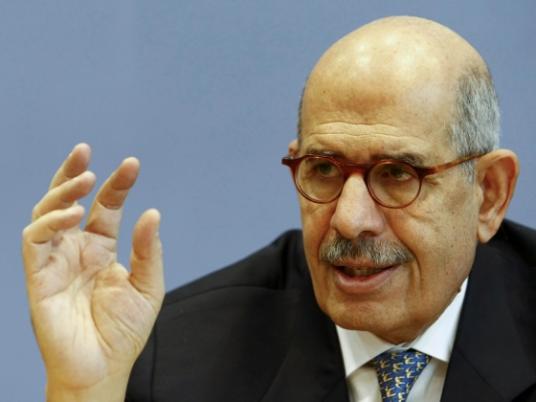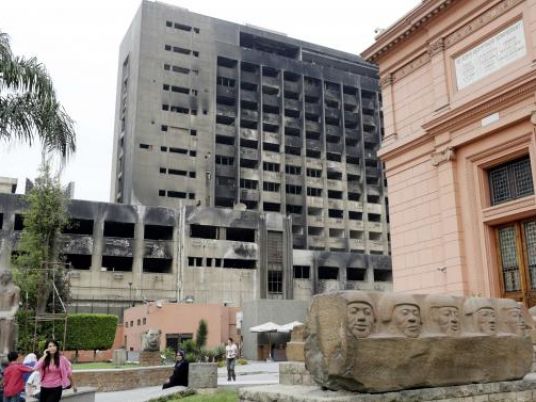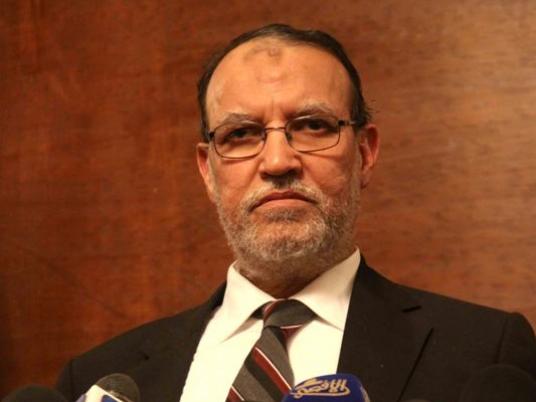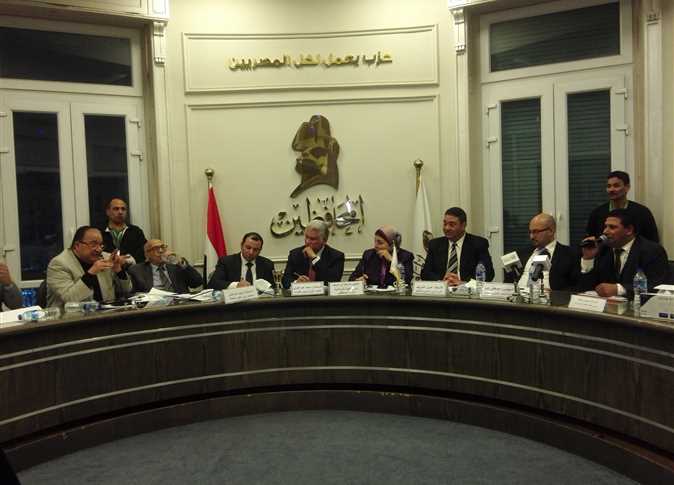Every five years, the National Democratic Party (NDP) is torn by the same old internal struggles over which candidates the party will select for parliamentary elections. Despite the conflicts, the NDP wins a landslide majority. The regime interferes in virtually every stage of the election. Elections are always marred by violence and thuggery–by the government and candidates alike.
Meanwhile, it's widely known that parliament is a weak political institution. So why does anyone feel there is still something worth fighting over?
The obvious answer is that voters support their candidates for personal reasons, either because of tribal affiliations or to obtain public services (schools, roads, etc) and, in some cases, even personal ones. Candidates seek the perks that come with being a member of parliament, including a raised social status and immunity from prosecution. Meanwhile, candidate and voter participation help confer upon the government the legitimacy it needs to appear “democratic” to the outside world. And so the system works, with all sides standing to gain something.
This analysis is correct, but nevertheless remains inadequate. It does not answer questions regarding the role of parliament and its place in the Egyptian power structure. The following is a tentative answer.
Established in 1957, the Egyptian Parliament was created as an instrument of the new revolutionary government rather than as a check on executive power. According to the Free Officers, the reason for creating both the Constitution and parliament is to "conscript" the people to support the revolution. After eliminating all opposition, they ran elections between supporters or politically indifferent persons, all of them declaring loyalty to the regime. This was the first element of the foundation of apolitical elections.
In order for the system to work, parliament had to offer Egyptian citizens incentives for their support. This is where the provision of social services–through legal and extra-legal channels–became key.
The targets of these services were always discrete interest groups: particular individuals, families, villages. As such the regime managed to rally a multi-class base of supporters who went to the polls, not for political reasons, but to secure personal or group privileges.
The principle of using parliament to mobilize popular support for the ruling party, rather than to empower Egyptians to freely choose their own government, has survived until the present day. The difference is that, while in the past the government overtly intervened in the electoral process by denying citizens their basic political rights, today it intervenes partly through legally-mandated institutions, such as the High Elections Commission, and partly though coercive security tactics.
Today, the ruling party continues to perpetuate the Egyptian parliament’s apolitical tradition. Established in 1978, the NDP is not a party in the conventional sense of the term. Its members are not united by a common vision, and political discussions rarely take place within the general party membership. NDP supporters consist of beneficiaries who support the regime not for political reasons, but to acquire certain services for themselves, their tribes or the electoral districts; more generally for non-official networks. Internal party elections are accompanied by the appointment of much more powerful party secretaries–much like under Nasser’s Socialist Union.
The NDP continues to rely on a network of local and family interests (to which most Egyptians remain outsiders) for its legitimacy–the difference being that, over time, these networks have become more organized and entrenched.
This clientage system has at once been both a source of power and vulnerability for the NDP, as the past two decades have shown. The regime gains unconditional support for whatever laws it presents to parliament. Meanwhile, those persons do not represent the regime, but their networks against it. This results in general political irresponsibility on the part of both parliamentary members and the people at large. In the long run this means the fragmentation of the base "conscripted" to support the regime.
The regime tried to control the conflicting regional powers through adopting a party-list system in 1984. The Constitutional Court foiled this attempt twice, and Egypt returned to elections for individual candidates in 1990. This switch increasingly revealed the inability of the NDP to use its financial and security resources to control the behavior of its own members.
Those NDP members who were not nominated by the party but still felt they had a chance to win–due to their strong local connections—began to nominate themselves as NDP-affiliated independents and defeated their officially-nominated NDP rivals. Many then rejoined the NDP after their election victory. This farce reached its peak in the 2005 election, when NDP independents seized 161 seats in parliament while the official NDP candidates took only 146–an indication of the fragmentation and the increasing relative independence of the local bases of the regime.
In the recent elections, the NDP addressed this problem by having its potential nominees sign a declaration stating that the party had the right to withdraw the nomination papers of any NDP candidate who was not officially selected by the party. At the same time it nominated more than one party candidate per seat for about half of the seats up for grabs. Independent and opposition papers mocked the NDP for that.
However, the new measure makes sense if one thinks of the NDP not as a political party, but rather as a tool for the regime to rally and control the apolitical regional power networks. But even this partial success has uncovered rifts within the ruling party, as excluded NDP candidates staged protests to have their names added to candidate lists, while others threatened to support the Muslim Brotherhood.
The NDP will not be able to resolve these issues in the short term. Perhaps the only possible solution for the party is to split into two–one for the so-called “old guard” headed by senior military leaders, and the other for the "new guard," which consists of young NDP businessmen who largely support Gamal Mubarak’s ambitions. This "suggested" solution is logically feasible, as Egypt is now undergoing a critical transformation, while the regime loses its grip on the media and large segments of society that feel increasingly strained by the effects of free-market liberalization.
Nevertheless, this two-party system is not on the agenda–at least not in the short term. The problem is that the underlying network of interests sustaining the NDP is not divided along the same lines.
Besides, neither of the two camps has a political project that is fundamentally distinct from the other. That's why they wage their limited wars via proxy. Moreover, this procedure means politicizing a non-political regime; i.e., a fundamental change that needs a base.
Such a transformation will most likely require a kick from below, when social powers become capable of formulating clear political demands and creating the basis for effective liberal and leftist currents. But this process is still in its infancy.




